Everyone knows that Pep Guardiola is one, if not the best, football coach of all time. But do you know what makes him so successful?
References and Inspirations - What gave rise to your playing style
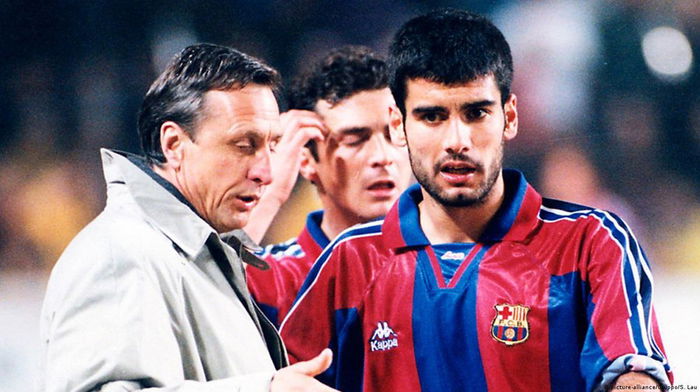
Pep has always been surrounded by talented and dedicated people since the beginning of his career, and this may have had a huge influence on his style of play.
He was a starter for Barcelona in the early 90s led by the legendary Johan Cruijff, this team was nicknamed the Dream Team and was four consecutive champions of the Spanish league in addition to winning several other titles. The main titles of Pep's career were:
For Barcelona B:
- Second Division B: 1990–91
For Barcelona:
- La Liga: 1990–91, 1991–92, 1992–93, 1993–94, 1997–98 and 1998–99
- Spanish Super Cup: 1991, 1992, 1994 and 1996
- European Champion Clubs' Cup: 1991–92
- UEFA Super Cup: 1992 and 1997
- European Cup: 1996–97
- Copa del Rey: 1996–97 and 1997–98
For the Spanish National Team:
- Gold Medal at the Olympics: 1992
Individual prizes:
- Bravo Trophy: 1992
- Best Spanish player: 1992
- Euro Cup Tournament Team: 2000
Johan Cruijff was considered one of the best footballers of the 20th century and one of the best football coaches of his time as well, having been Pep's great mentor, who has openly said that “If it weren't for him” (Johan), Pep would never have got to where he is in football.
At that time Johan adopted the style of “Analogous Football” or “Total Football”, which has as its main characteristic “Rotating” the positioning of players constantly, without losing the game structure of the positions. In other words, no player has a fixed position, everyone needs to perform at least two to three roles on the field during the match.
Pep, at the beginning of his career, built his teams always based on the fundamentals of “Analogue Football”, however, always modernizing this style of play as necessary, and also daring to innovate by subtly modifying simple ideas: such as possession of the ball, compact marking, pressure and numerical superiority. All of these things are always carried out in a unique and special way (which we will see in the Sequence) in all of Pep's teams, this means that his teams always play extremely modern football, making his teams a reference for other coaches in the world. whole.
Main Features
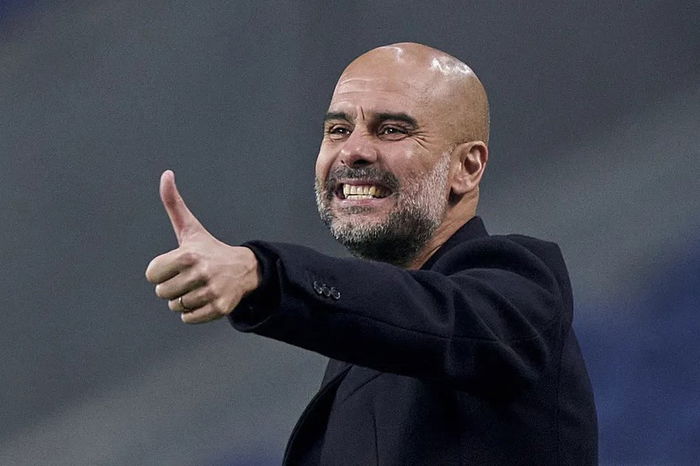
Pep is fond of possession of the ball and always aims to be with it at all times, which is why he constantly adopts positional systems. This means that he plays with formations that aim to form triangles between players, compacting zones on the field. These triangles, in addition to facilitating the exchange of the ball between players, help them to infiltrate between the opposing lines more easily.
This concept coming from “Analogue Football” compacts zones on the field, making it difficult for the opponent to have good passing options.
A characteristic of positional systems is that the ball always goes to the player, and not the other way around, and therefore, players move acting in a pre-determined position. If the ball leaves this zone, and it is still in the possession of his team, the player rarely leaves his position to act in another position where the ball is.
Pep modernized this concept by changing players' positions during matches, making them subtly break this positional rule, confusing the opponent's marking lines. These changes happen quickly during set pieces, or with substitutions.
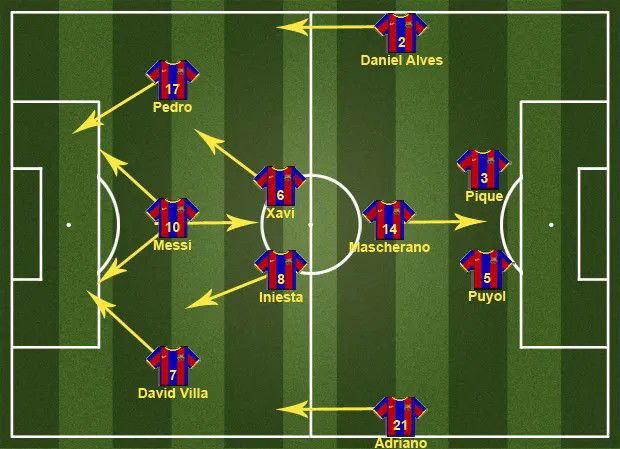
The Spaniard's real innovations in the positional system are in the way he chooses his teams. He commonly plays players in positions that are not associated with them, and also constantly changes the number of defenders, attackers and midfielders depending on the games.
Pep too He is one of the best coaches off the field. One of his main qualities is understanding the group he is commanding, always aiming to extract the greatest potential from each of the team's players.
The ease he has in “perceiving” what each player is good at, and how they behave during the game, allows him to “bet” more calmly on these positional changes during matches and put together unique tactics that are only possible having this critical look at him.
A good example of this is City in 2023. Although City's main characteristic is the constant exchange of passes and the joint participation of all defensive and midfield players in setting up plays, the team's top scorer was the one who participated least in them. Haaland finished the 22/23 season with the historic mark of 52 goals scored, but he rarely created plays or performed different functions on the field, other than attacking.
This is a luxury that Pep's City had, because, in the coach's view, the team would function better if the Dane was always the last man to touch the ball. And even though he is not a player who “plays modern analogous football” he still works in a team that is playing this style of play.
If we were to quickly list, other important characteristics of Pep's teams are:
Libero Goalkeepers - Pep likes goalkeepers who play a lot with their feet, actively participating in the construction of plays, usually making short passes to other defenders.
Triangular formations - From defense to attack, players position themselves creating triangles on the field, facilitating the exchange of short passes between them. These players move by rotating and changing their positions in these triangles, aiming to pull opposing markers to open holes in their defense.
Isolated wingers - Pep's teams always work the ball with short passes in defense and midfield, but the full-backs always position themselves in isolation so that eventually holes in the defense allow long passes to them, resulting in attacks with numerical superiority.
False 9 - Pep loves the false 9, who is nothing more than an extremely versatile attacking player, who instead of running and finishing, focuses more on playmaking, and also returns to score, always floating between the attacking sectors and midfield. The False 9 finishes from outside the area, and is also responsible for setting up long passing plays for the isolated wingers that we have just mentioned.
Block marking - Pep's players usually mark their opponents in a block. This means that they create a zone around the ball when it is in the opponent's possession, both in front and to the sides and behind it. This means that the opposing player, who has possession of the ball, has no passing options to either advance or retreat, forcing him to make more risky long passes.
Marking the ball out - Pep's teams usually put a lot of pressure on the ball out of the opposing goalkeepers, and full-backs in the opponent's defense zone. This means that from the beginning of the play, the options for the team playing against Pep are always risky long passes.
Tiki-Taka - Although Pep doesn't like this term very much, his teams are always associated with this style of play, in which players frequently pass the ball to each other “nobody holds the ball for long in one sector of the field". Short passes aim to gain possession of the ball, and force the opponent to be more incisive in marking, which can end up resulting in fouls.
Conclusion
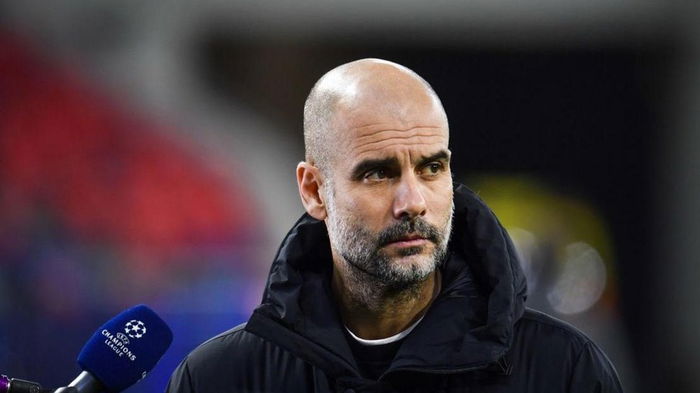
If you've read this far, thank you very much, I hope you had fun and enjoyed the content.
Don't forget to share this article on social media. Until next time!









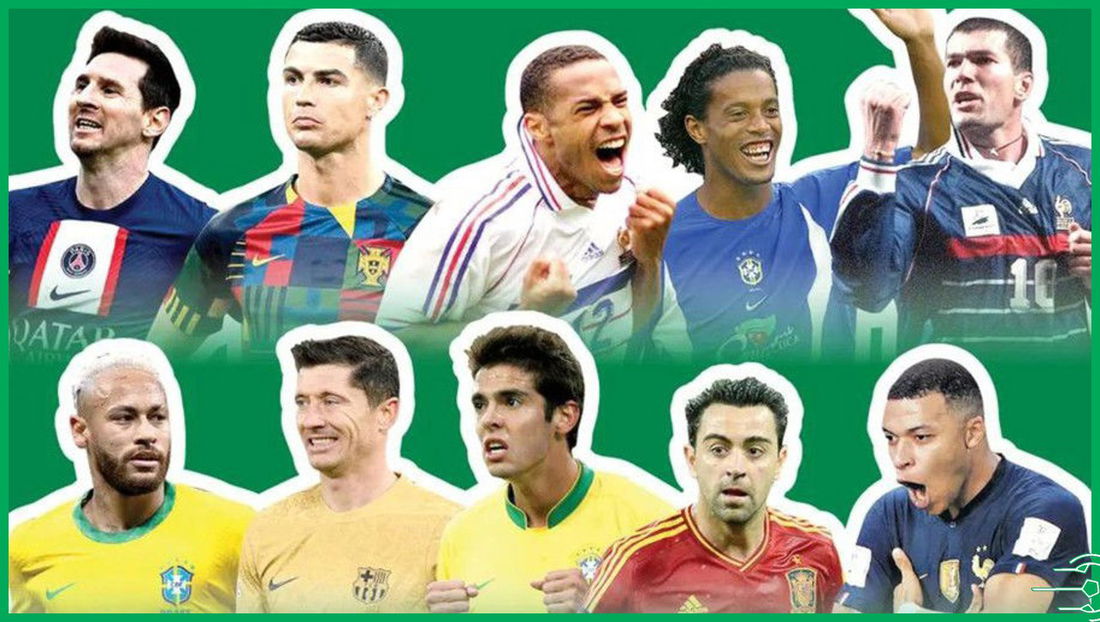
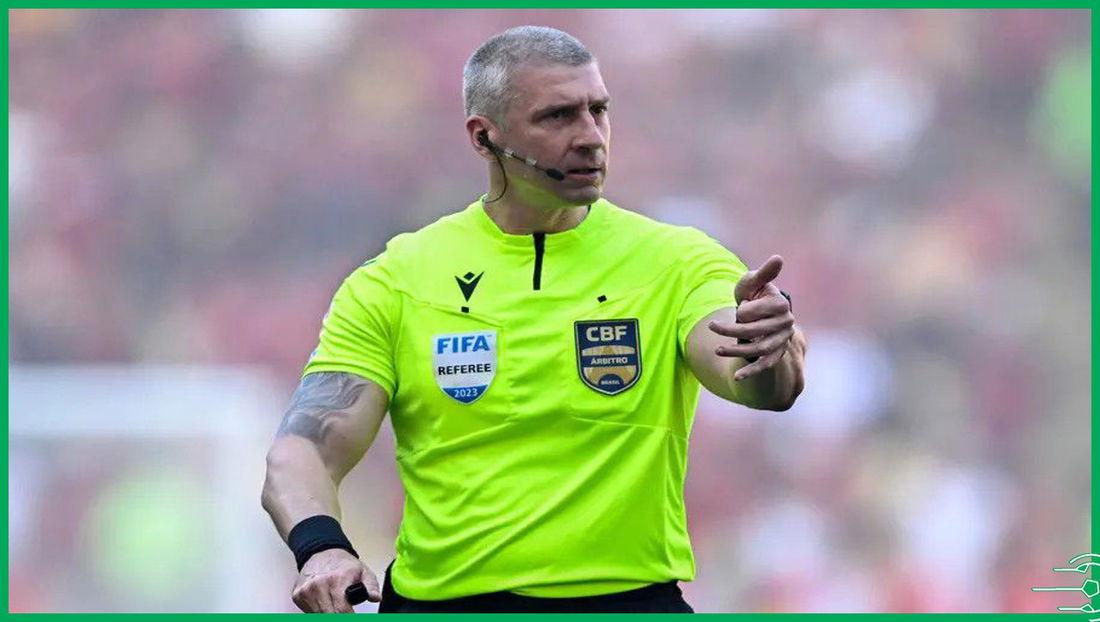



— Комментарии 0
, Реакции 1
Прокомментируйте первым